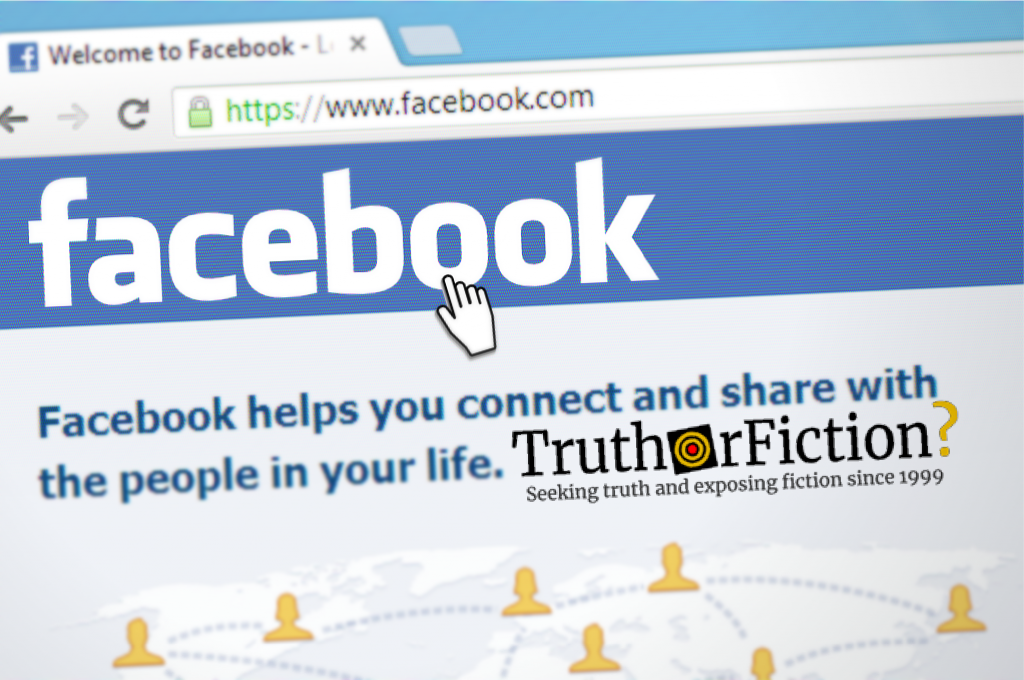A Gizmodo story first published in May 2016 that we initially deemed Unproven has since been proven false.
According to the story:
Several former Facebook “news curators,” as they were known internally, also told Gizmodo that they were instructed to artificially “inject” selected stories into the trending news module, even if they weren’t popular enough to warrant inclusion—or in some cases weren’t trending at all. The former curators, all of whom worked as contractors, also said they were directed not to include news about Facebook itself in the trending module.
One of the contractors, speaking on condition of anonymity, claimed that topics related to “conservatives” was particularly stifled and compiled a list they said demonstrated their point:
Among the deep-sixed or suppressed topics on the list: former IRS official Lois Lerner, who was accused by Republicans of inappropriately scrutinizing conservative groups; Wisconsin Gov. Scott Walker; popular conservative news aggregator the Drudge Report; Chris Kyle, the former Navy SEAL who was murdered in 2013; and former Fox News contributor Steven Crowder. “I believe it had a chilling effect on conservative news,” the former curator said.
The story was published less than a week after Gizmodo reported on the makeup of the news curation teams:
The trending news section is run by people in their 20s and early 30s, most of whom graduated from Ivy League and private East Coast schools like Columbia University and NYU. They’ve previously worked at outlets like the New York Daily News, Bloomberg, MSNBC, and the Guardian. Some former curators have left Facebook for jobs at organizations including the New Yorker, Mashable, and Sky Sports.
According to former team members interviewed by Gizmodo, this small group has the power to choose what stories make it onto the trending bar and, more importantly, what news sites each topic links out to. “We choose what’s trending,” said one. “There was no real standard for measuring what qualified as news and what didn’t. It was up to the news curator to decide.”
In that story, Gizmodo reported that several former workers felt like “they were there not to work, but to serve as training modules for Facebook’s algorithm.”
Two years later, in the midst of the platform’s stated efforts to engage with fact-checkers, our own editor-in-chief Brooke Binkowski criticized Facebook for similar inaction.
“They’ve essentially used us for crisis PR,” Binkowski told The Guardian. “They’re not taking anything seriously. They are more interested in making themselves look good and passing the buck … They clearly don’t care.”
Facebook itself has claimed that personal interactions influence a user’s news feed:
What you see in News Feed is influenced by your connections and activity on Facebook. You choose who to be friends with, which Pages to follow and what groups to join, and we help organize all the possible posts you could see.
We want to show you the news stories that are most meaningful to you, but sometimes we might get it wrong. We’re making changes to prioritize local and trusted news sources so that you see more high-quality news in News Feed.
Since Gizmodo published the claim of anti-conservative “bias” on the platform, similar accusations on the part of right-wing political figures and media outlets have intensified, even as Facebook tapped a blog on that political spectrum, “Check Your Facts,” to be part of its fact-checking program in 2019.
At that time, the platform’s chief executive officer, Mark Zuckerberg, falsely claimed that the blog had been approved for membership in that program by a separate entity, the International Fact-Checking Network.
The platform’s vice president of global public policy, Joel Kaplan, has been identified as the person who has both pushed for the blog to be entered into the program and stepped into the company’s decision-making process to argue for leniency towards right-wing commentators facing potential sanctions related to Facebook’s terms of service.
The Twitter account @FacebooksTop10 has demonstrated that, protestations to the contrary, right-wing political rhetoric consistently makes up the majority of the “best-performing” links on the platform:
In February 2021, researchers at New York University further debunked the claim of anti-conservative “suppression” on social media platforms in a study saying that right-wing opinions are more often dominant in online debate, citing former U.S. President Donald Trump’s Facebook page as an example:
Compare user engagement with Trump’s Facebook page versus Joe Biden’s page during the peak of last year’s presidential campaign, from September 3, 2020, to Election Day. The total number of likes, comments, and shares was 307 million. Trump elicited 87 percent of the total; Biden, only 13 percent. These numbers, derived from CrowdTangle, an analytics tool owned by Facebook, don’t suggest a Republican candidate being stifled.
Trump and his cohorts, the study said, would continue to flog that narrative because it appeals to the same mindset that has fueled the fake “QAnon” conspiracy theory.
“The false bias narrative is an example of political disinformation, meaning an untrue assertion that is spread to deceive,” the authors added. “In this instance, the deception whips up part of the conservative base, much of which already bitterly distrusts the mainstream media. To call the bias claim disinformation does not, of course, rule out that millions of everyday people sincerely believe it.”
Update 1/19/2022, 4:14 p.m. PST: This article has been revamped and updated. You can review the original here. -ag
- Former Facebook Workers: We Routinely Suppressed Conservative News
- Want to Know What Facebook Really Thinks of Journalists? Here's What Happened When It Hired Some.
- How Can I Manage What News I See on Facebook?
- 'They Don't Care': Facebook Factchecking in Disarray as Journalists Push to Cut Ties
- Claim of Anti-Conservative Bias by Social Media Firms is Baseless, Report Finds
- False Accusation: The Unfounded Claim That Social Media Companies Censor Conservatives

